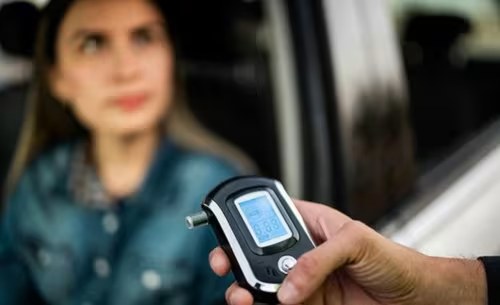Disclaimer: This guest post was written by a third party and is for informational purposes only. It does not constitute legal advice or create an attorney-client relationship with The Meehan Law Firm. For legal advice, please contact our office.


In California, Misdemeanors represent a significant category of California Penal Code crimes, situated between infractions and felonies in terms of severity. Understanding the nature of misdemeanors, their classifications, penalties, and the legal protections available is crucial for anyone navigating the criminal justice system in the state. In the case of a sex crime-related charge, these offenses can result in serious legal repercussions and should be addressed with appropriate legal representation, such as consulting a Sex Offenses lawyer in California, who can help navigate the complexities of the case.
Defining Misdemeanors in California
In California, misdemeanors are defined as criminal offenses that carry a maximum penalty of one year in county jail and/or a fine. These offenses are less severe than felonies but more serious than infractions. The California Penal Code outlines specific behaviors that qualify as misdemeanors, ranging from petty theft to driving under the influence (DUI).
Types of Misdemeanors
Misdemeanors in California can be classified into several categories:
- Standard Misdemeanors: These include offenses such as shoplifting, vandalism, and simple assault.
- Gross Misdemeanors: More serious than standard misdemeanors, these can involve higher penalties and include offenses like DUI with injury or resisting arrest.
- Wobblers: Certain crimes may be charged as either misdemeanors or felonies, depending on the circumstances. Examples include burglary and drug possession.
Penalties for Misdemeanor Offenses
The penalties for misdemeanor offenses can vary significantly based on the crime's nature and the individual's criminal history. Generally, individuals convicted of a misdemeanor may face:
- Up to one year in county jail.
- Fines ranging from $1,000 to several thousand dollars.
- Probation, which may include community service or attendance at rehabilitation programs.
Misdemeanors vs. Felonies
The distinction between misdemeanors and felonies is essential within the legal framework. Felonies are more serious offenses, punishable by more than one year in state prison and potentially significant fines. Examples of felonies include murder, sexual assault, and robbery. Understanding this difference helps individuals recognize the potential impact of a misdemeanor charge on their future.
Common Examples of Misdemeanors
California law encompasses a wide range of misdemeanor offenses. Common examples include:
- Petty theft (shoplifting items valued under $950)
- DUI without injury
- Disorderly conduct
- Domestic violence (misdemeanor level)
- Public intoxication
These offenses can result in serious legal repercussions and should be addressed with appropriate legal representation, such as consulting a Misdemeanors Defense Attorney to help navigate the complexities of the case.
Rights of Individuals Charged with Misdemeanors
Individuals charged with misdemeanors in California retain several legal rights under the California Constitution. These rights include:
- The right to remain silent and avoid self-incrimination.
- The right to legal counsel, including a public defender if the individual cannot afford an attorney.
- The right to a fair trial and an impartial jury.
Understanding these rights is vital for individuals facing misdemeanor charges, as they can significantly influence the case's outcome.
Legal Defenses Against Misdemeanor Charges
Various defenses may be employed in misdemeanor cases, depending on the circumstances. Common defenses include:
- Lack of evidence: Challenging the prosecution's evidence or arguing that it does not meet the burden of proof.
- Alibi: Demonstrating that the accused was not present at the scene of the crime.
- Self-defense: Asserting that the accused acted in self-defense or defense of others.
An experienced attorney can identify the most viable defense strategies tailored to each case.
Expunging a Misdemeanor from the Record
In California, individuals may seek to expunge a misdemeanor from their criminal record under certain conditions. This process, governed by California Penal Code Section 1203.4, allows individuals to petition the court for dismissal of their conviction. Eligibility typically requires completing probation, paying all fines, and not having any new criminal charges. Expungement can significantly enhance one’s opportunities for employment and housing.
The Importance of Misdemeanor Pre-Trial Representation
Pre-trial representation is a crucial aspect of the legal process for individuals facing misdemeanor charges. Engaging an attorney early in the process can provide significant advantages, including:
- Assessing the strengths and weaknesses of the case.
- Negotiating a plea deals with the prosecution, which may result in reduced charges or penalties.
- Preparing for court appearances and understanding the legal procedures involved.
Services Included in Pre-Trial Representation
Attorneys specializing in misdemeanor defense typically offer a range of services during the pre-trial phase:
- Case evaluation: Reviewing evidence and formulating defense strategies.
- Plea negotiations: Working with the prosecution to reach favorable agreements.
- Court representation: Attending hearings and advocating on behalf of the client.
Expectations During the Pre-Trial Process
Clients can expect several key developments during the pre-trial phase, including:
- Initial appearances and arraignment: The accused will be formally charged and asked to enter a plea. Withdrawing a plea in California can be difficult. Typically, courts are reluctant to allow plea withdrawals or modifications.
- Discovery: Both the defense and prosecution exchange evidence relevant to the case.
- Pre-trial motions: Attorneys may file motions to suppress evidence or dismiss charges based on legal grounds.
Potential Outcomes of Pre-Trial Negotiations
The pre-trial negotiation process can yield various outcomes, including:
- Dismissal of charges: If sufficient evidence is lacking, the case may be dropped.
- Plea agreements: The accused may agree to plead guilty to lesser charges in exchange for reduced penalties.
- Trial preparation: If negotiations fail, the case will proceed to trial.
Misdemeanor Case Handling Process
The handling of a misdemeanor case generally follows these steps:
- Arrest and Booking: The individual is arrested, booked, and formally charged.
- Arraignment: The accused appears in court to enter a plea.
- Pre-Trial Proceedings: Includes discovery, motions, and negotiations.
- Trial (if necessary): If no plea agreement is reached, the case proceeds to trial, where evidence is presented, and a verdict is reached.
Navigating misdemeanor charges in California can be complex and daunting. Understanding the nuances of the law, the rights afforded to individuals, and the importance of legal representation can significantly impact the outcome of a case. Legal counsel is essential in ensuring that rights are protected and that individuals receive a fair trial.
(844) 4-DUI STOP
Categories
Need Help?
Free Consultation, discreet, and no obligation- talk to an attorney.
More Blogs

How Can You Defend Someone Who Is Guilty?
Defense attorneys protect constitutional rights, ensure due process...
Read More..
Why a Second DUI Might Be Your Wake-Up Call
Facing a Second DUI in California: Why It Should Be Your Wake-Up Call..
Read More..
How To Spot a Bad DUI Lawyer in 10 Minutes or Less
Choosing the Right DUI Lawyer in California: Spotting Red Flags Early...
Read More..



